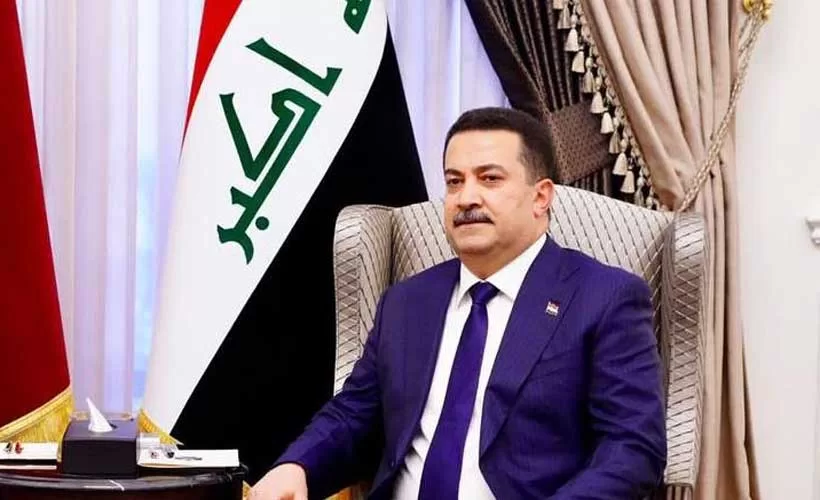In a statement released soon after the attack, Al-Sudani described the strike as a ‘dangerous escalation’ and reiterated his long-standing commitment to maintaining Iraq’s sovereignty, in its entirety.
The U.S. Department of Defence was quick to respond, evoking its right to self-defence, but President Biden’s administration will be loath to see a deterioration in its relations with the Iraqi government.
As Israel’s operations in Gaza persist – and continue to inspire widespread international opposition and indeed condemnation – the Middle East is known to be at risk of a wider conflagration.
While Iran has long been the bête noire of the U.S. and its allies, there is consensus that the Islamic Republic is committed to using proxy forces to target Israel – or at the very least constrain the actions and ambitions of the Netanyahu government.
Despite the resolute support amongst Iraqis for the Palestinian cause – and the sheer horror and fury with which the bombardment of Gaza has been met in the country – Iraq maintains a unique and inherently valuable diplomatic position in this context.
The stability of Iraq under its current government is notable as political strife remains the norm across much of the Arab world.
Peace and reconciliation have been reflected in the economic sphere with unemployment and inflation down, productivity and oil exports up, and clear signs that the Iraqi dinar (IQD) is now on much firmer ground.
The $153 billion budget delivered in June by the al-Sudani government provided the foundation for this progress, alongside the successful diminishment and ongoing containment of the once marauding Daesh.
Of equal importance, Iraq maintains constructive working relations with all three of Iran (the preeminent Shia state), the Sunni Gulf (of which Saudi Arabia assumes de facto leadership) and important foreign actors like the U.S., U.K., and the European Union (EU).
If this sounds like a difficult balancing act – Syria, Lebanon, and Palestine amongst others have certainly found it so – then the Iraqi government doesn’t show it.
Indeed, Prime Minister Al-Sudani has garnered praise from international and domestic observers alike for his sure-footedness in balancing geopolitical necessities with intent to maintain and enhance Iraq’s national sovereignty.
This is good for Iraq – energising its national identity, economy, and society – but also provides an opportunity for regional actors with real interest in preventing the war in Gaza from unleashing wider turmoil.
The metaphor of one nation serving as a bridge to connect other (perhaps conflicting) nations is a somewhat tired cliché, but it certainly applies to Iraq and its intelligently constructed diplomatic position.
To go beyond metaphor, it is well worth detailing how Iraq can help provide respite to the Middle East in the months and years ahead; despite that the U.S., U.K., and EU all hanker for as their leaderships face elections later this year.
First, Iraq’s government will continue to leverage the trust it has accrued in Western capitals to add meaningful impetus to Arab calls, and those from the wider international community, for an immediate ceasefire in Gaza.
Second, Iraq can thread the Iranian needle that others simply can’t, aligning the Islamic Republic’s condemnation of violence against the Palestinian people while working to convince Iran that diplomatic efforts can prevail.
Third and finally, Western diplomats should continue to use Iraq as a sounding board for their own evolving positions on the Gaza conflict.
They can do this safe in the knowledge that the Iraqi government’s standpoint reflects the wants and concerns of most Arabs – be they liberal or conservative; Sunni or Shia; opposed to Western interference or not.
As stated, this position is unique and must not be overlooked by decisionmakers in the West and the Gulf, which fear a wider war above all else. It’s notable that Iran’s leadership, despite often being depicted as bellicose, seems to feel the same way.
And even if these power players make the mistake of not fully leveraging their relations with Iraq to deflate regional tensions, Iraq itself will not be deterred.
Indeed, the republic has both clear goals and the capacity to work proactively with its many and varied allies to meet them.
